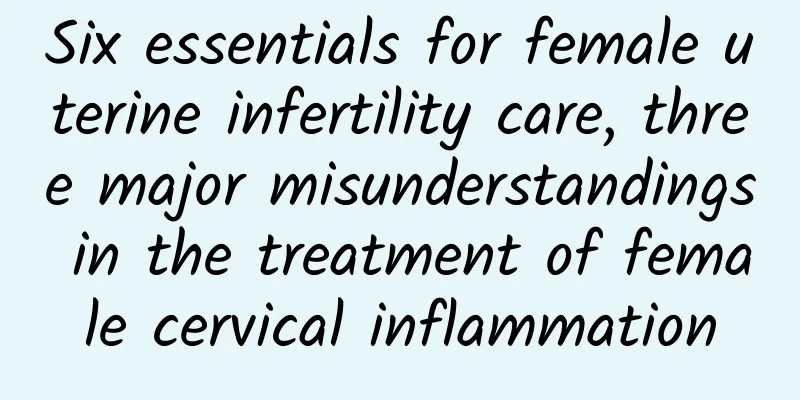What medicine can cure endometritis and pelvic inflammatory disease faster?

|
Endometritis and pelvic inflammatory disease usually require combined antibiotic treatment to quickly relieve inflammation. The more commonly used drugs include amoxicillin and clavulanate potassium, levofloxacin, metronidazole, etc., but the specific medication needs to be decided by the doctor based on the condition and type of pathogen, and you cannot take the medicine at will. Endometritis and pelvic inflammatory disease are mostly caused by bacterial infections, and the medication regimen usually needs to cover broad-spectrum antibiotics. Amoxicillin and clavulanate potassium are suitable for mild to moderate infections and can effectively fight a variety of pathogens; levofloxacin belongs to the quinolone antibiotics and is suitable for patients who need to target complex or severe infections; metronidazole mainly targets anaerobic bacteria and is particularly effective for inflammation caused by anaerobic bacteria. Some severe cases may require injectable antibiotics such as ceftriaxone or clindamycin. For combined fungal infections, antifungal drugs such as fluconazole need to be added. During treatment, medications should be adjusted in a timely manner according to changes in symptoms and blood or secretion culture results. Patients with chronic inflammation may need a longer course of treatment and take anti-inflammatory analgesics, such as ibuprofen, to relieve symptoms. Endometritis and pelvic inflammatory disease are mostly caused by bacterial infections, and the medication regimen usually needs to cover broad-spectrum antibiotics. Amoxicillin and clavulanate potassium are suitable for mild to moderate infections and can effectively fight a variety of pathogens; levofloxacin belongs to the quinolone antibiotics and is suitable for patients who need to target complex or severe infections; metronidazole mainly targets anaerobic bacteria and is particularly effective for inflammation caused by anaerobic bacteria. Some severe cases may require injectable antibiotics such as ceftriaxone or clindamycin. For combined fungal infections, antifungal drugs such as fluconazole need to be added. During treatment, medications should be adjusted in a timely manner according to changes in symptoms and blood or secretion culture results. Patients with chronic inflammation may need a longer course of treatment and take anti-inflammatory analgesics, such as ibuprofen, to relieve symptoms. During medication, you should avoid stopping or reducing the dosage on your own to avoid recurrence of infection or drug resistance. Maintaining a regular schedule, avoiding staying up late, and increasing nutritional intake can help improve immunity. Try to avoid irritating foods in your diet, and eat more high-protein foods and fruits and vegetables rich in vitamins, such as eggs, fish, and spinach. Pay attention to personal hygiene, avoid resuming sexual life too early, and have regular checkups to evaluate the treatment effect. If symptoms do not improve or fever, severe abdominal pain, etc. occur, you need to see a doctor again as soon as possible to adjust the treatment plan. |
<<: Symptoms of late cervical hypertrophy
>>: Is surgery for cervical erosion harmful to the body?
Recommend
Stomach discomfort during menstruation
Stomach discomfort during menstruation If you hav...
Which women are at high risk of ectopic pregnancy?
Which women are susceptible to ectopic pregnancy?...
Things you should pay attention to in your daily life if you suffer from vulvar leukoplakia
It is necessary to treat vulvar leukoplakia, but ...
What are the causes of vulvar leukoplakia?
Many female friends are puzzled about the fact th...
How to choose painless abortion surgery and medical abortion surgery
After an unexpected situation, everyone will worr...
Hand-fried brown sugar bubble tea? Nutritionist: 3 ways to reduce calories and increase nutrition
It was recently revealed that the brown sugar pea...
What to eat less to treat leucorrhea? Drink more soy milk
Less vaginal discharge is also an abnormality, so...
What is the success rate of conservative treatment for ectopic pregnancy?
The success rate of conservative treatment for ec...
Is minimally invasive treatment good for cervical erosion? These methods are also very effective in treating cervical erosion.
Gynecological diseases have always been a pain fo...
What is MRI? How to read adenomyosis MRI?
What is MRI? How to read adenomyosis MRI? 1. MRI ...
How to diagnose adenomyosis? What are the dangers of adenomyosis?
How to diagnose adenomyosis? What are the dangers...
How to relieve dysmenorrhea? What are the methods to relieve dysmenorrhea?
Dysmenorrhea refers to the pain that occurs durin...
What should I do if I have dull pain in the left abdomen due to adnexitis? What medicine should I take?
Left abdominal pain caused by adnexitis can be re...
Why does menstruation take time to come after curettage?
Why does menstruation take time to come after cur...
What are the main causes of dysmenorrhea in women?
Many women can only bear the pain of dysmenorrhea...









